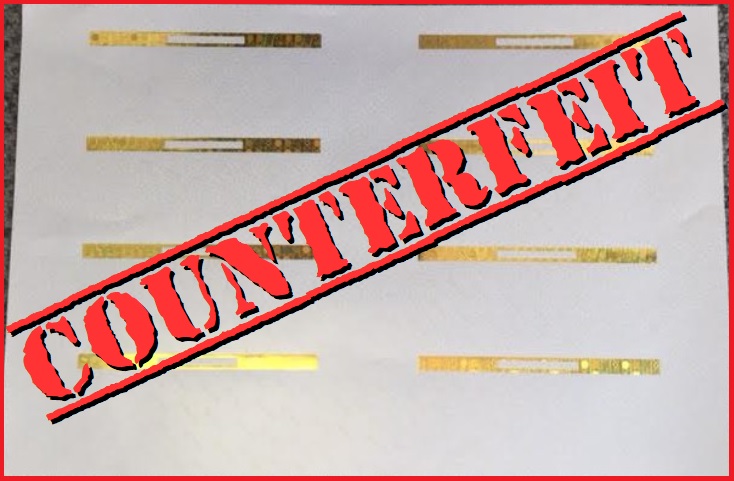Sometimes, convicted coupon counterfeiters get sentenced to years behind bars and are ordered to spend the rest of their lives attempting to repay the millions of dollars in losses they caused.
Other times, they get probation and a stern talking-to.
Four months after a Connecticut man managed to avoid prison time for an audacious, years-long counterfeit coupon scheme, he’s now managed to avoid being held financially responsible for it.
Prosecutors have informed a federal court that they do not intend to seek restitution in the case of Naugatuck, Connecticut resident Thomas Papcin. Papcin pleaded guilty more than two years ago to mail fraud, after taking advantage of a gaping security loophole to print and sell counterfeit coupons. He admitted to reaching out to a manufacturer of heavy-duty, glossy, watermarked, hologram-imprinted coupon paper and falsely claiming to represent legitimate brands, in order to purchase reams of blank coupon paper that he used to print his own fakes.
And then, over a period of about three years, he sold these coupons online, causing untold financial losses to countless manufacturers.
The fact that those losses were “untold” turned out to be the problem, when determining how much Papcin should be penalized. A number of manufacturers “were able to identify specific loss amounts they suffered that were caused by those particular coupons,” prosecutors told the court last week. “Unfortunately, the Government is not able to determine whether the defendant was the originator of the coupons that caused the losses or whether the defendant purchased those coupons from someone else, duplicated them, and resold them. Without that information, the Government cannot determine what percentage (if any) of the identifiable loss is attributable to the defendant as opposed to other coupon counterfeiters.”
Using that logic, you might conclude that if you design your own counterfeit $20 bills, that’s bad. But if you buy a counterfeit $20 bill from someone else, then copy it and sell the copies – no problem!
Thus concludes a case that laid bare just how astoundingly ill-informed many of the main players involved were about coupon fraud and the serious impact it has.
At his sentencing hearing back in May, Papcin faced a potential penalty of up to 20 years behind bars. Instead, he got five years of probation, as the defense, prosecution and judge all seemed to downplay or misunderstand the seriousness of his crimes. Before taking Papcin’s case, his attorney claimed he had never heard of “any coupon fraud cases… I really didn’t know what that meant.” Counterfeiting coupons, he claimed, “did not have the damage to the community seen in other areas of federal prosecution, such as drug trafficking, crimes of violence, or crimes involving children or corruption of American institutions.” And because Papcin was not living it up by “driving a fancy car with ill-gotten gains, going on fantastic vacations, or living in a home that his legal income could not support,” it couldn’t have been that serious a crime.
Instead of forcefully pushing back against this argument, the prosecution seemed more concerned with the supposed harm caused to Papcin’s customers – the ones who purchased his fake coupons and used them to get free items at stores across the country. Prosecutors appeared to equate “counterfeit” coupons with “non-working” coupons – a spokesman for the prosecutors’ office unconvincingly claimed to Coupons in the News that “most, if not all, of the coupons were identified by the retailers as bogus and were not redeemed,” while prosecutors told the judge of their efforts to identify and reimburse “the numerous customers who lost money buying coupons that did not work,” though they cited no evidence that Papcin’s counterfeits “didn’t work.”
So they actually went through Papcin’s business records, contacted as many of his customers as they could, and informed them they were eligible to be reimbursed for the counterfeit coupons they knowingly purchased.
“The individuals who purchased the coupons received bogus coupons and therefore were defrauded of money and suffered a loss,” prosecutors said in explaining their theory to the court last week. Unsurprisingly, the many customers who purchased counterfeit coupons and used them to illegally obtain free items were not exactly forthcoming after being contacted by federal authorities. Prosecutors said they received “only a handful” of responses, and none of the supposed victims expressed “any interest in pursuing restitution.”
So they turned their attention to seeking restitution for the manufacturers whose coupons were counterfeited. But, as previously stated, since they couldn’t determine whether Papcin designed the coupons he sold or copied them from someone else, they threw up their hands and decided against seeking any restitution at all, after consulting with manufacturers and deciding that “it is not worth investing the resources to try and obtain a restitution result given the small likelihood of actual recovery from this particular defendant.”
In imposing Papcin’s light sentence in May, the judge expressed her hope that news coverage of the case would likely serve as a deterrent for any other current or future coupon fraudsters – though it’s unclear how much of a deterrent no prison time and no financial penalty will be.
So coming as it does right as Virginia coupon counterfeiter Lori Ann Talens was sentenced to 12 years in prison and ordered to pay $31 million in restitution, the conclusion of Papcin’s case perfectly illustrates that in the battle against coupon fraud, you win some, you lose some. Future fraudsters who hope to take after Papcin – but risk taking after Talens – will have to decide whether they want to take that chance.














